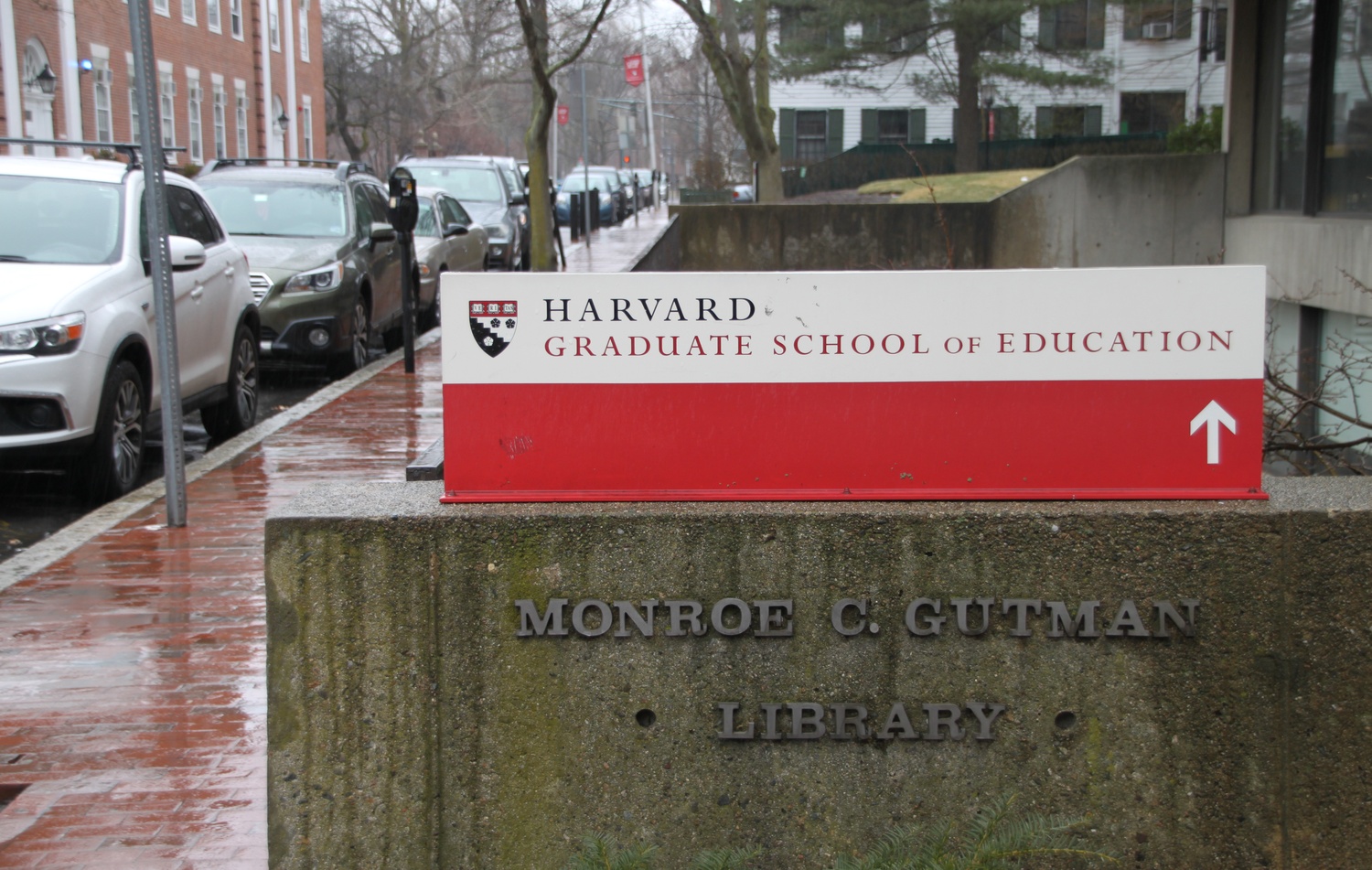
News
Summers Will Not Finish Semester of Teaching as Harvard Investigates Epstein Ties

News
Harvard College Students Report Favoring Divestment from Israel in HUA Survey

News
‘He Should Resign’: Harvard Undergrads Take Hard Line Against Summers Over Epstein Scandal

News
Harvard To Launch New Investigation Into Epstein’s Ties to Summers, Other University Affiliates

News
Harvard Students To Vote on Divestment From Israel in Inaugural HUA Election Survey
In Forum, Ed School Alumni Wrestle with Global Challenges

Four alumni of the Harvard Graduate School of Education discussed their experiences grappling with political and economic challenges facing international education at a forum Friday.
About a hundred people packed into Longfellow Hall for the event, which was part of the Graduate School of Education’s Askwith Forum — a series of public lectures centered on obstacles facing the education industry in the 21st century. The panelists featured officials from both government and non-governmental organizations that specialize in international education policy.
Fernando M. Reimers, a professor at the Graduate School of Education who moderated the event, opened the panel with remarks on the “global significance” of education in a time when he said some people doubt its value.
“We live in times in which some people question the global nature of humanity’s shared work in improving the world,” Reimers said. “There’s a new form of national populism with xenophobic undertones that suggests that to be a globalist is antithetical to caring for local communities or nations.”
In her opening remarks, LeAnna L. Marr, an education expert and official at the United States Agency for International Development, said although policy frameworks surrounding education and foreign aid vary by administration, the industries continue to receive funding from the government.
“Education still retains high bipartisan support, especially from Congress,” Marr said.
But two other panelists — former Deputy Minister of Education in Colombia Luis E. Garcia de Brigard and World Bank analyst Myra M. Khan — said governments and powerful organizations are not doing enough to support global education and leadership.
Garcia de Brigard argued that governments are not placing sufficient emphasis on teaching lessons of global citizenship and leadership.
“[Governments] need to be brave enough to put in place the incentive systems that are actually aligned with what we’re hoping for,” he said.
Khan described her experience at the World Bank, where she said she saw other sectors such as agriculture and energy receive more funding than education.
“A lot [of] our big international financial institutions don’t actually put their money where their mouth is,” Khan said.
Khan spoke about the need to fund education around the world, specifically citing girls’ education as an area of concern.
“You need a lot more money. You need a lot more people in education. And you just need a lot more people starting their own organizations and bringing that kind of fire and passion and complete commitment to getting stuff done,” she said. “It’s clearly not enough right now.”
The panel also included Wilson I. Aiwuyor, who worked in the Department of Education under the Obama administration, who said there is “no single solution” to solving global challenges in education.
Cécile Guédon, a lecturer in Comparative Literature who attended the event, said the panelists introduced her to thinking in a global context and she felt “very inspired.”
“I’m really wondering about the themes of global citizenship, it’s not something we’re supposed to be thinking about very much in our practice here,” she said. “I care a lot about giving my students the tools to address larger audiences than merely academia, but I had never considered the global stage as one that I should engage with.”
Graduate School of Education student Melissa Donovan said it was invigorating to see alumni speak about how their education at Harvard helped them make an impact in their respective careers.
“It was great to hear, as a student in the [International Education] program, to see the diverse experiences that people have had who have gone through this program and have all taken very different paths toward the same goal of improving the quality and relevance of education abroad,” Donovan said.
Want to keep up with breaking news? Subscribe to our email newsletter.
